
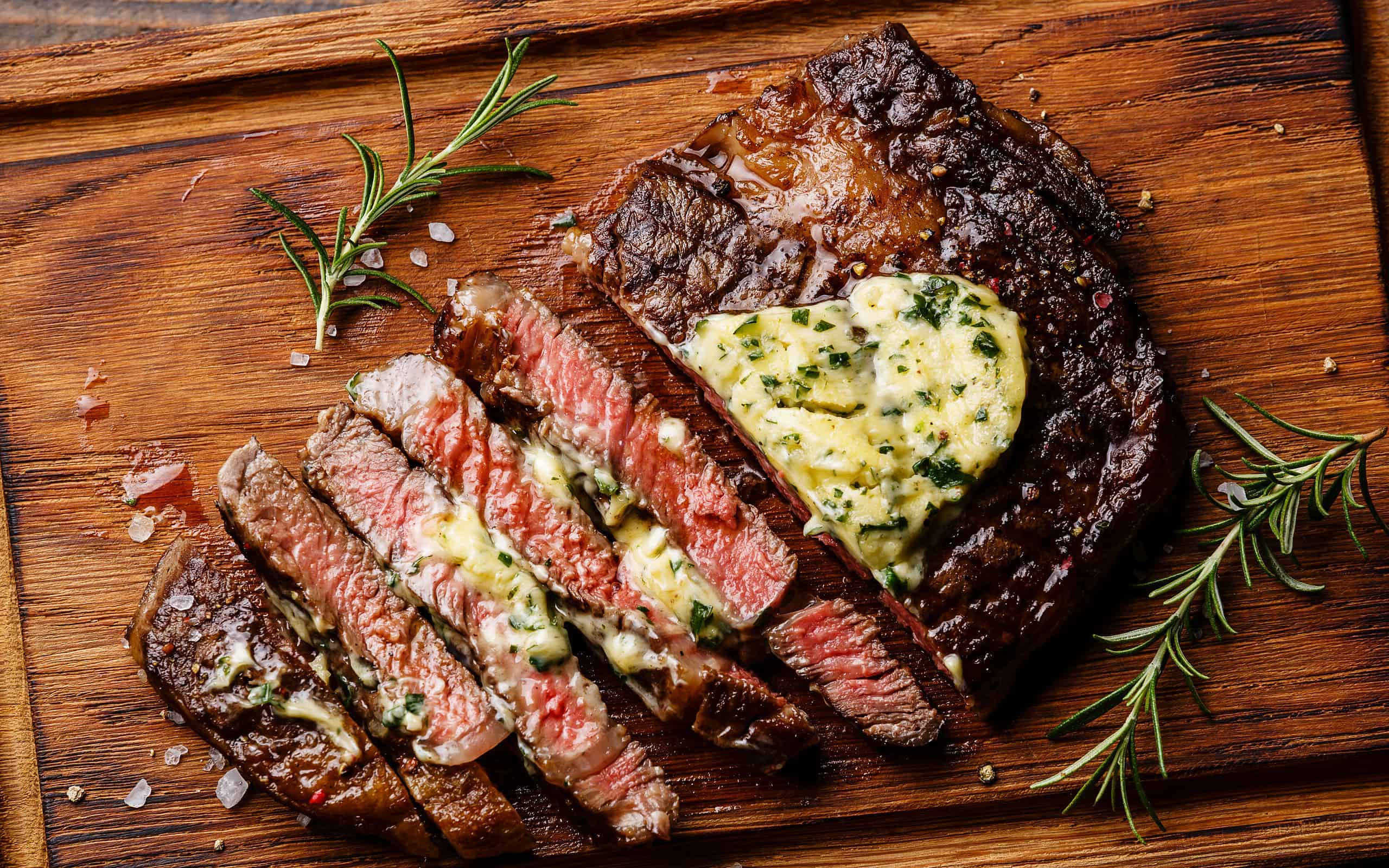



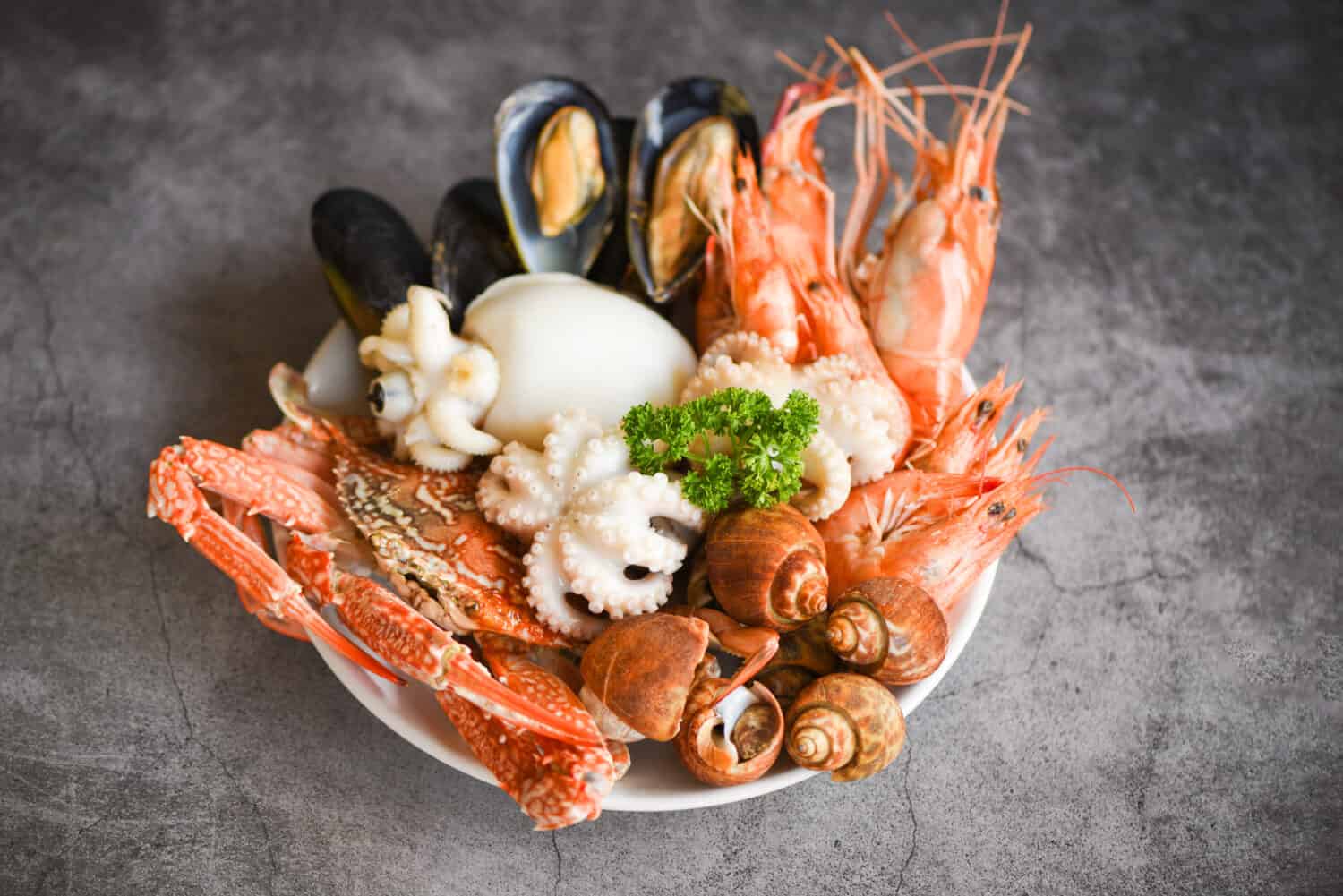

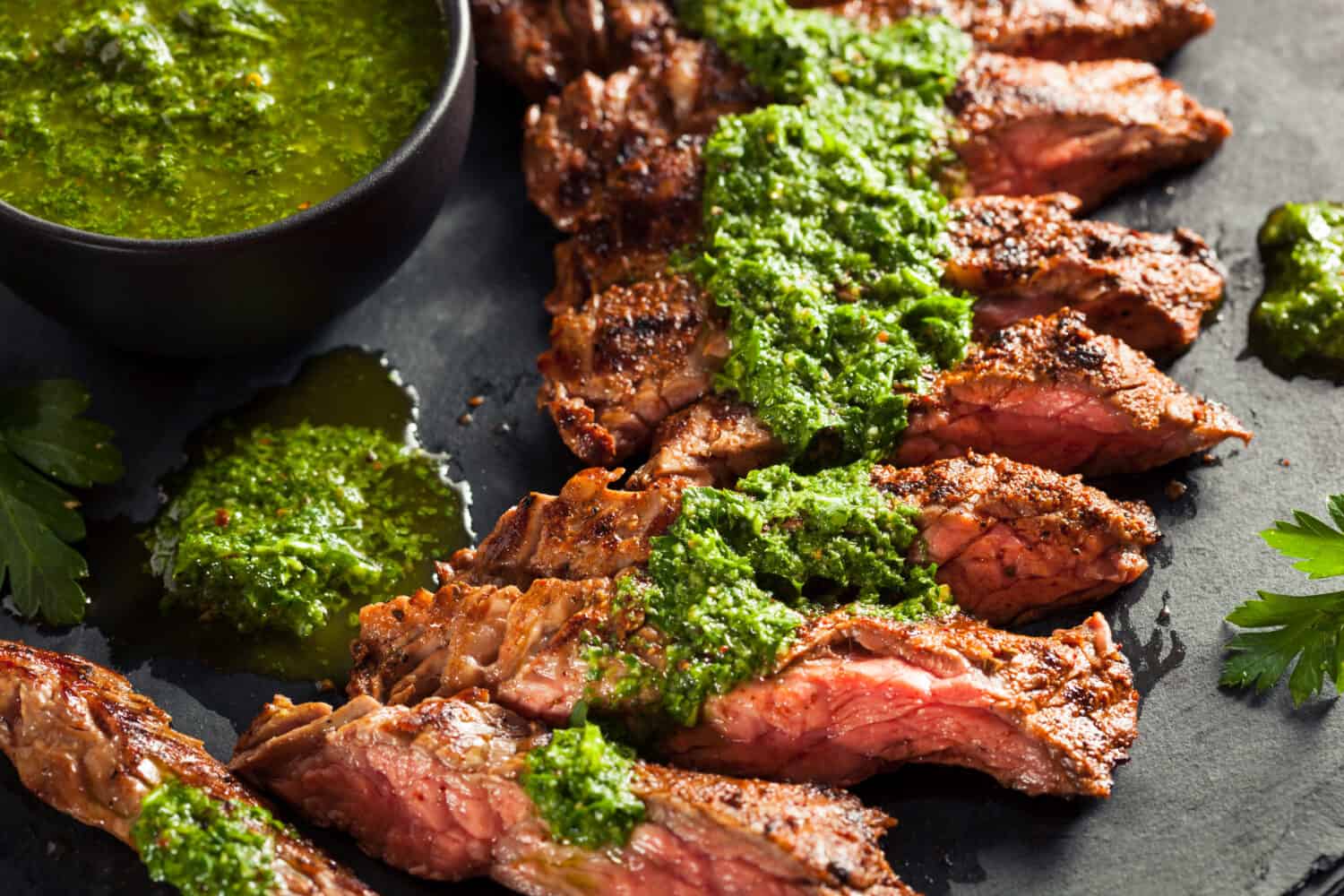






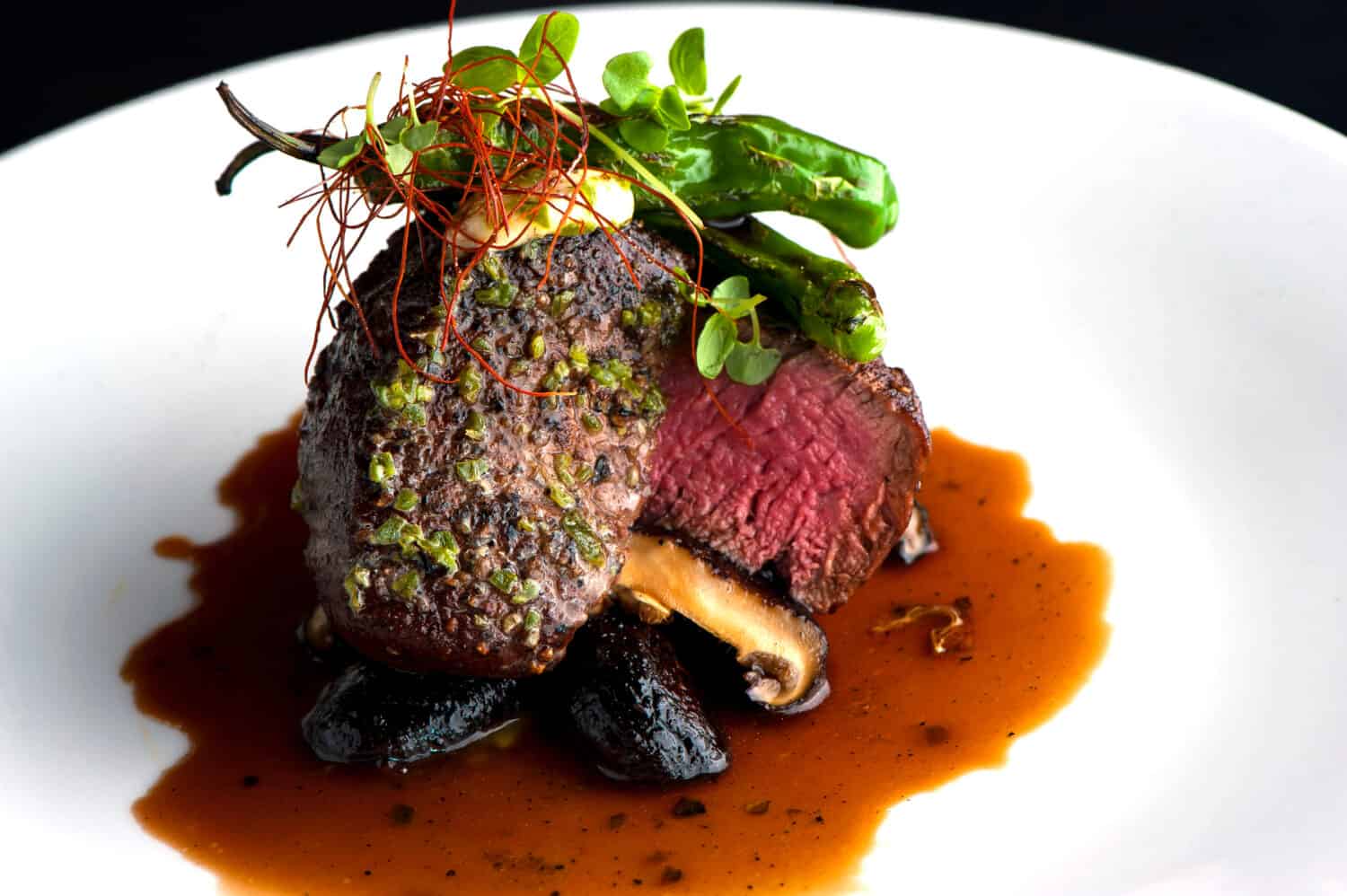

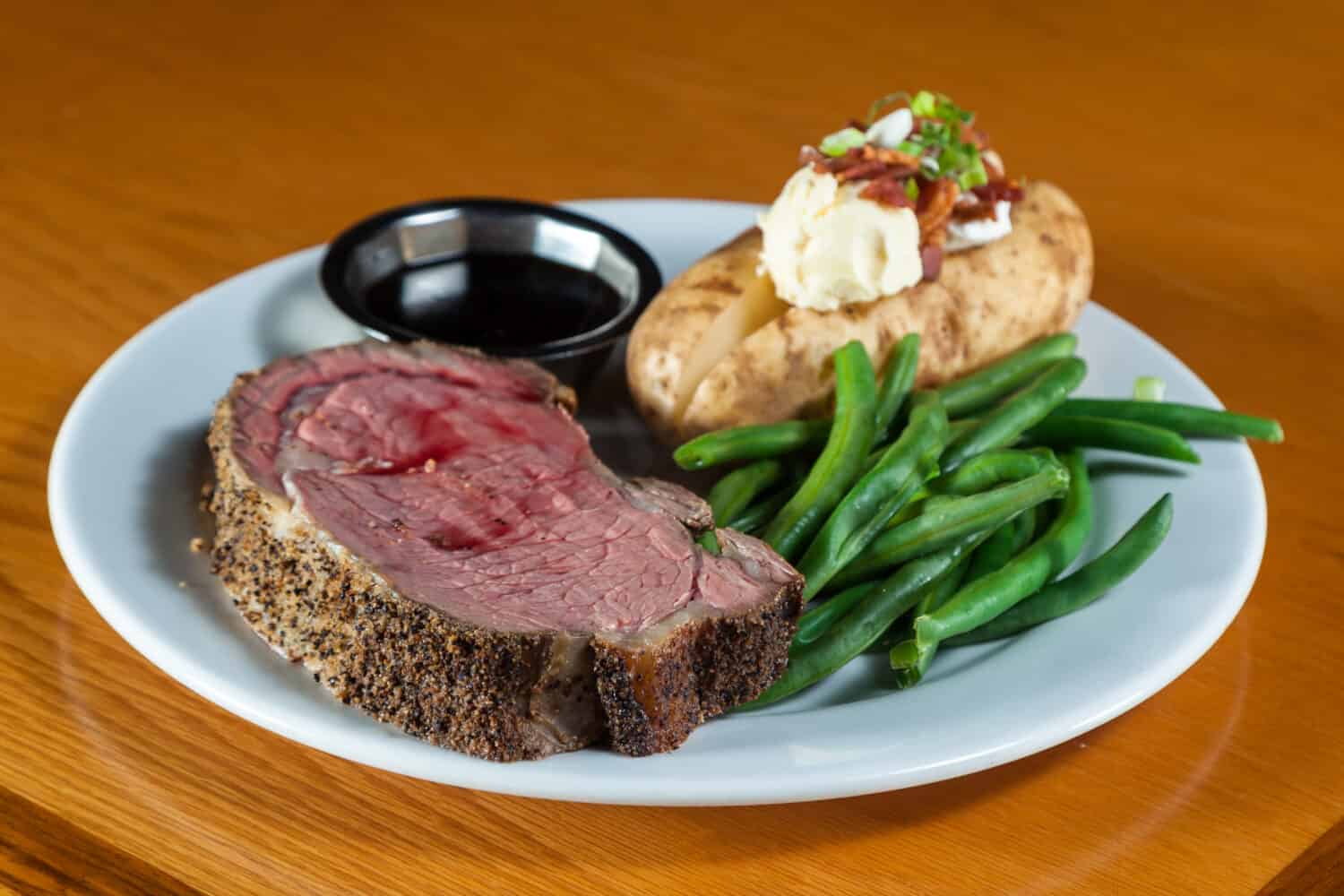

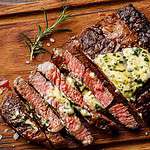















Outback Can’t Compete With These 8 Must-Try Steakhouses
For years, Outback Steakhouse has been renowned as a place where people dine to get a quality, juicy steak. It has always been a great restaurant with a relaxing, casual, atmosphere known for their quality ingredients. They offer a variety of meat options too, from sirloin and prime rib to porterhouse. However, they aren't the only quality, affordable steakhouse option.
If steak is your thing, then you should know there are other options besides Outback Steakhouse. Some restaurants may not be as well-known, and others are on par, but all have exquisite offerings. From the upscale atmosphere of restaurants like Saltgrass Steakhouse and The Palm to the more laid-back locales like Logan’s Roadhouse, these must-try steakhouses need to be on your list. Try at least one of these steakhouses and you may have a new favorite.
Saltgrass Steak House
Of the steakhouses that are way better than Outback, Saltgrass Steak House is easily one of the best. They have a great and vast menu that has everything from thick stakes to chicken sandwiches. The prices are also decent. The steaks are a bit more expensive, but they're well worth it. This restaurant has a nice vibe and it's a great place for a date night.
Best Steak to Try
Many of the steaks at Saltgrass Steak House have been nominated for awards, so you really can't go wrong. If you're going for the first time, start off with the Wagon Boss Center-Cut Top Sirloin. It's cooked to your preference, and you'll love every bite. Do yourself a favor and get it with a side of baked potato soup. During our second visit, try the bone-in ribeye.
Texas Roadhouse
You may not have heard of Texas Roadhouse yet, but if you like steak, you will soon. This is a quickly growing steakhouse chain that is expanding out of the Lone Star State. Like many other steakhouses, they have an expansive menu with steak, fish, chicken, and any other protein you can imagine. Of their specialties are the fresh-baked dinner rolls, which alone are worth the trip.
Best Steak to Try
There are many tasty steaks at Texas Roadhouse. Many people believe that the best of all is the bone-in ribeye. The steak has a great sear and perfect char, and it will leave you wanting more. Other great steaks here include the 12-ounce prime rib, the 24-ounce porterhouse, and the six-ounce Dallas filet.
Hoss's Family Steak & Sea
Another of the unknown steakhouses that are way better than Outback is Hoss's Family Steak & Sea. While other steakhouses have a decent menu that includes seafood, this place brings it to a whole new level. It's the true meaning of surf and turf. There's a vast selection of crab cakes, shrimp, whitefish, salmon, and more. The steaks are also incredible.
Best Steak to Try
Any of the seafood you try at Hoss's Family Steak & Sea is top-notch, but if you're looking for steak, you're also in for a treat. One of the top menu options is the steak & crab cake, which is expertly cooked and provides the perfect bite. Like at many other steakhouses, one of the best options to try is the bone-in ribeye. It's perfectly cooked and seasoned, and you'll never forget it. For something a bit simpler, try the tasty sirloin steak tips, which are also amazing.
Fogo de Chão
Instead of Outback Steakhouse, consider a visit to Fogo de Chão. It's a great steakhouse of a different flavor. The restaurant specializes in traditional Brazilian steak. Every cut of steak is packed with flavor and the atmosphere is great as well. There are also many other tasty dishes, including chicken, lamb, pork, and seafood. The desserts are top-notch as well. Try the cheesecake brûlée. It will change your life.
Best Steak to Try
You must be cautious when you visit Fogo de Chão. If you're not careful, you could start eating and never stop. There are just that many great meats to try. If you only go once, start with the house speciality, which is the picanha. The meat is prepared with a large fat cap attached. As it's cooked, the fat melts and coats the steak, which provides incredible caramelization, and it carries over with the taste.
The Palm
Of the steakhouses that are way better than Outback, The Palm may be one of the fanciest. This is an upscale restaurant that is great when you're going out for a celebration or a date. The Palm has a great atmosphere, and you can choose from an expansive menu. There are steaks, pork chops, classic seafood, Italian choices, incredible desserts, and more.
Best Steak to Try
If you're ready for a great time, head to The Palm and try a steak. One of the best options here is the prime New York strip. It's a large 14-ounce steak that is perfectly seasoned with salt and herb-brushed virgin olive oil for a taste you'll never forget. Another great option is the center-cut filet. You can have the steak cooked however you like, including charred or black and blue.
The Capital Grille
If you're looking for something a bit different in a steakhouse then stop by The Capital Grille. This place is something else. With the atmosphere and incredible food, it's like you're a part of royalty. Go there for lunch or dinner and try something from the expansive menu that includes fresh oysters, lobster, tuna tartare, Maine lobster, and of course, tasty steak offerings.
Best Steak to Try
There are also many steak options at The Capital Grille. For a real treat, try the porcini-rubbed bone-in ribeye steak. It is cooked with an incredible 15-year aged balsamic sauce. The steak is good on its own but the mushroom crust brings it up to another level. Another incredible steak here is the sliced filet mignon. It's cooked with wild mushrooms and cipollini onions. It's to die for.
Fleming’s
At Fleming’s Prime Steakhouse & Wine Bar, you get to choose from a menu of famous steaks and other tasty options. Plus, you get to taste some of the finest wines in the world. And you can do it all in one place. The dinner menu has everything you'd like to see at a fine steakhouse. There's tons of great seafood, from oysters to sweet chili calamari. Plus, there are flavorful chicken dishes and vegetarian options.
Best Steak to Try
Go to Fleming's often and try all of their steak options. They're all that great. However, if you only go there once, then you need to try the certified Angus beef ribeye. This beef comes from the finest cattle that are grain-fed and that fact translates over into the flavor. The restaurant says that this ribeye passes 10 science-based specifications for quality, so you know it's good. Pair your steak with the roasted asparagus, and you'll be in heaven.
Logan’s Roadhouse
Finally, on our list of the steakhouses that are way better than Outback, we have Logan’s Roadhouse. This steakhouse is more laid back then some of the others on this list, but that doesn't mean it isn't fantastic. After you have your steak, you can feast on other treats, such as the cinnamon and yeast rolls.
Best Steak to Try
In our opinion, the best steak to try at Logan’s Roadhouse is the prime rib. It's a large 13-ounce cut that is perfectly seasoned with their signature rub. The cut is made with a lot of care. It's slow-roasted for six hours, and it's also hand-carved to order, so you get exactly what you want. Get a side of coconut shrimp or crab cakes for the perfect meal.